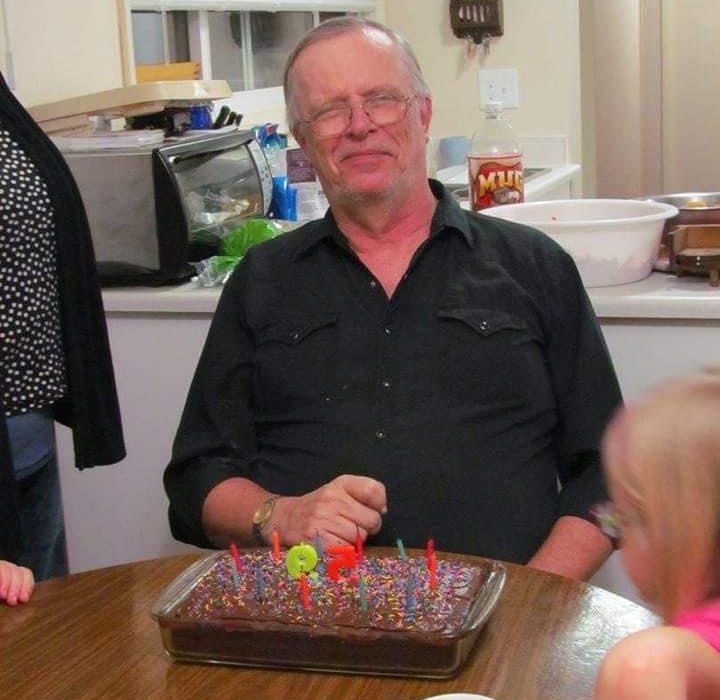As Edmonton remains under voluntary restrictions due to increased COVID-19 cases in the region and numbers across the province continue to rise, officials continue to urge Albertans to follow social distancing rules and wear masks.

But are the pleas falling on deaf ears? There remain some people in the province who aren’t following the guidelines.
Numbers from Alberta Health show that since the voluntary Edmonton restrictions were put into place on Oct. 8, there have been nearly 300 complaints put forward about businesses and individuals ignoring them.
Dr. Robert Barrett, an Alberta-based social scientist and author of Hardwired: How Our Instincts To Be Healthy Are Making Us Sick, said he believes part of the problem is a combination of quarantine fatigue and a false sense of security for those who haven’t experienced it first-hand.
“The social needs to go out and connect with people is very strong,” Barret said Wednesday.
“We evaluate the risk of contracting COVID or maybe even giving it to others as being less than what is needed.
“There are people who hear about the virus who don’t necessarily experience it — perhaps first-hand with their own family or themselves — and that also gives them that sense that, ‘Yeah, maybe this isn’t as big as we think it is.'”

Edmontonian Alex Archbold, whose 63-year-old father-in-law Dave Ryning died of COVID-19 in April, shared the story of his death online in hopes it would increase awareness and caution.
“He said he’d come down with flu symptoms, that he wasn’t feeling well,” Archbold said about his father-in-law, who according to his family worked at The Home Depot and followed public safety rules.
“We called him the next day to see how he was doing, and he was really kind of gasping for air and he wasn’t making sense.

Get weekly health news
“He seemed confused…. and we didn’t realize at the time, that he was lacking oxygen,” Archbold said. “His lungs had started to fill with fluids, and it was getting to a really dangerous part of COVID.”
Archbold said the family called an ambulance to check on Ryning, but that medical officials didn’t think he needed to be hospitalized.
He was dead the next morning.
“He was working on his truck the day before he passed away. So it’s not like he was incapacitated, lying in bed,” Archbold said.
“He was six-two, no pre-existing conditions, didn’t smoke. He had nothing wrong with him other than having COVID.”
Archbold and his family have openly talked about the death online, hoping to encourage more Albertans to take precautions like social distancing and wearing masks.
A number of municipalities in Alberta have also passed bylaws making masks or face coverings mandatory in all indoor public spaces, on public transit and in some cases, even outdoor spaces.
But Archbold says he still sees many people in Edmonton, where there is a mandatory indoor mask bylaw, without them.
“If you think that you’re more important than the people around you, or if you think your rights are more important, you might end up killing somebody like my father-in-law.”
Health officials in the province have said trends show many new cases appearing in young adults — to the point where Alberta’s chief medical officer of health Dr. Deena Hinshaw made a plea to that age group to take more precautions.

Psychiatrist Dr. Peter Silverstone said he believes a major issue is that public messaging, in general, isn’t enough to change behaviors.
“You can say, ‘It’s safe to wear masks, you help other people wearing masks, you help yourself wearing masks,'” Silverstone said. “But sometimes that isn’t enough. Look at many other areas.
“We know we shouldn’t smoke, we know we should exercise. We know we should eat healthily. And that information is not enough to persuade most people to do those things.”
Silverstone said he believes the province could consider adding enforcement rules, such as fines, but otherwise those who don’t follow the rules likely won’t start unless they personally experience COVID-19.
“If you’ve had an experience — you’re much more likely to change your behavior,” he said. “And it seems that this is the case also with COVID. That you’re more likely to change your behavior, recognize it, if you’ve seen it.
“Unfortunately social actions, shaming or other things, is not a strong enough way to motivate people.”
However, for Archbold, he said he hopes Albertans start to listen before it’s too late.
“I think the truth is, we don’t really know who it’s going to affect and how, and you’re really rolling the dice by not taking precautions and not taking it seriously.”




Comments
Want to discuss? Please read our Commenting Policy first.